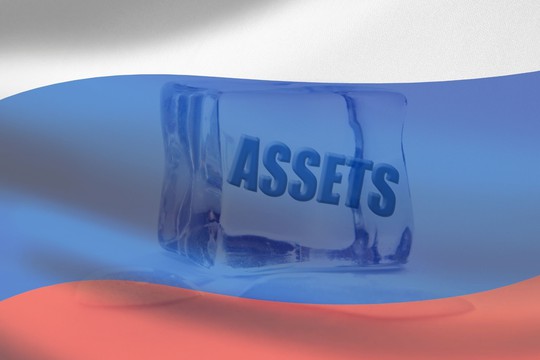Russian assets, frozen in the European Union are likely to generate between 15 billion and 20 billion euros in after-tax profits until 2027, depending on the evolution of global interest rates, a senior EU official said, Reuters informs.
Part of the profits, as well the tax on the gross amount, is likely to be transferred from the EU to Kyiv on a regular basis, but some of the money will have to stay in the West to build a buffer against the expected Russian retaliation which could destabilise the global financial system, the official said.
Some 70% of all Russian assets immobilised in the West is held in the Belgian central securities depository Euroclear, which has the equivalent of 190 billion euros worth of various Russian central bank securities and cash.
Russia could also take legal action to seize Euroclear cash in securities depositories in Hong Kong and Dubai, the official said, and more lawsuits against are likely from Western banks which lost their money invested in Russia, the official said.
"That's the mechanism how Euroclear could be totally emptied, basically," the senior EU official said.
If Euroclear were to run out of capital, the Belgian central bank would have to withdraw its licence, likely causing a global financial crisis because Euroclear has assets in custody of 37 trillion euros, the official said.
From the start of the war until last February, the profits generated by the Russian assets amounted to 5.2 billion euros.
Meanwhile, Moscow hopes frozen assets swap scheme will benefit Russian stocks, Reuters notes.
Russia hopes its stock market will benefit from a scheme beginning this month where Russians who own frozen foreign securities will be able to apply to sell them to foreigners with frozen assets in Russia, a government minister said.
Moscow presents the plan as a way for both Russian and foreign investors to free up assets that have been blocked by Western sanctions and Russian counter-measures since the start of the war in Ukraine.
"Therefore, I think that it is quite expected that part of this money, maybe most of it, will be returned and invested... in our Russian shares and securities," he told a conference in Moscow.
The finance ministry set out the mechanism for the swap on Monday, saying Russians with frozen foreign assets who wanted to take part must apply to a local broker, Investitsionnaya Palata (Investment Chamber), between March 25 and May 8.
The Russian-owned foreign securities will be pooled into lots which foreign buyers can bid for between June 3 and July 5, and pay for using funds from special "type-C" accounts in Russia, which are otherwise effectively blocked.
Euroclear, one of the depositories which holds foreign securities of Russian investors, said it had no comment as it is difficult to assess if the Russian proposal is doable at the moment.
But Alexey Sedushkin, CEO of the Investitsionnaya Palata brokerage, said the scheme was "a win-win situation for both Russian and international retail investors", and that no regulatory restrictions would be violated.
As a result of sanctions, more than 3.5 million Russians have frozen assets abroad worth around 1.5 trillion roubles ($16.3 billion). They can apply to sell up to 100,000 roubles worth of foreign securities under the scheme. According to the central bank, 80% of affected Russian investors have frozen foreign assets up to that threshold.
read more in our Telegram-channel https://t.me/The_International_Affairs

 11:27 15.03.2024 •
11:27 15.03.2024 •























